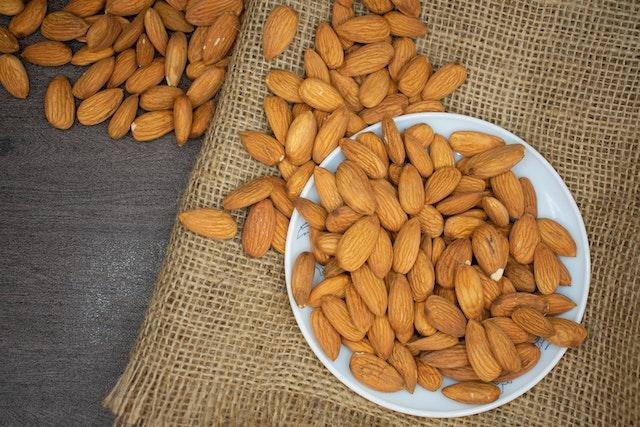Protein alternatives to meat: Chiropractic Health Tips

- posted: Nov. 28, 2022
During the holidays and throughout the year, it is hard to find meat alternatives in the United States. The amount of burger places out pace the vegetarian spots, even in California.
We need protein but there are other ways of getting protein other than from meat or dairy. There are some healthy options for protein if you don't want to eat meat.
Why do we need protein?
We need proteins in our body to do several functions:
- Build tissues and help muscles repair
- Hormone regulation and production
- Enzymes*
- Immune function
- Energy
* Enzymes are necessary for biochemical reactions in our body. They helps aid in every system and function. From Breathing to digestion. Having too little or too much can lead to stress and overload to the body. If you are not eating meat and are not getting enzymes, supplements are recommended so you body stays healthy and gets the enzyme connections it needs.
Vegetarian Protein Substitutes:
1. Tofu: (10g)
Contains, fat, carbs and essential amino acids.
2. Edamame: (11g for 1 1/8 cup)
Has 10% daily amount of Vitamin C and Iron. 8% of vitamin A and 2.5 grams of fat.
3. Almonds: (6g for one ounce)
Magnesium, Vitamin E. Helps lower blood sugar, cholesterol and reduce blood pressure.
4. Oats: (10.7g per cup)
Low in sugar but 85% is starch. 66% carbs so this one should not be eaten everyday but can be in moderation.
5. Pistachios: (25g per cup)
36% potassium, 11% vitamin C, 26% Iron, 104% Vitamin B6, 37% Magnesium, 12% Calcium
6. Black beans: (8g for 1/2 cup)
No sugar, 7g of fiber, has vitamin A&C, Calcium, Folate, Magnesium, Iron
7. Pumpkin Seeds: (12g per cup)
Helps with Urinary tract and bladder infections, high blood pressure and blood sugar, kidney stones and parasites.
8. Walnuts: (4.3g per one ounce or about 14 halves)
Contains healthy levels of Omega 3s. Copper, Folic Acid, Phosphorus, vitamin B6, Manganese, Vitamin E.
9. Quinoa: (4.4g per 3.5 ounces)
About 83% carbs and starch, maltose, galactose, ribose
10. Asparagus: (0.4 per one medium spear)
Vitamin C and Iron
11. Broccoli: (2.5g per cup)
High amount of water 89%,
12. Lentils: (17.9g per cup)
Thiamine, Niacin, vitamin B6, Folate, Pantothenic Acid, Iron, Magnesium, Phosphorus, Zinc, Copper, Manganese.
13. Chickpeas: (14.5g per cup)
Manganese, Folate, Copper, Iron, Zinc, Phosphorus, Magnesium, Thiamine, Vitamin B6, Selenium, Potassium.
14. Peas: (8.2g per cup)
Vitamin K, Zinc
15. Avocado: (4g for a full avocado)
Magnesium, Potassium, Vitamin C, Vitamin E, Vitamin K
16. Plant based protein powder: (20g per scoop)
17. Cashews: (5g per ounce)
Copper, Magnesium, Manganese, Zinc, Phosphorus, Iron, Thiamine, Vitamin K, Vitamin B6
18. Kale: (0.6g per cup)
Vitamin A, K, C, Potassium, Calcium
19. Chia Seeds: (4.7g per ounce)
Iron, Magnesium, Phosphorus, Vitamin B1 & B3
20. Spinach: (0.86g per cup)
Calcium, Iron, Magnesium, Potassium, Vitamin A, Folate
21. Soy: (29g for one cup)
22. Artichokes: (4.2g per medium artichoke)
Vitamin C, Iron, Magnesium, Calcium, Vitamin D, Cobalamin
Dr. Amie Gregory, DC, CCEP, ANF is a San Francisco, CA and San Carlos, CA chiropractor that understands full body health. She works with athletes, expectant moms, office workers and everyone else in between. Contact our San Francisco, CA chiropractic office or San Carlos, CA chiropractic office today!
Location
Find us on the map - Please click desired location below
Precise Moves Chiropractic San Francisco
3150 18th Street, Suite 334
San Francisco, CA 94110, United States
24 hour Scheduling makes it easy!
(Hours may change due to doctor availability)
Hours in the mission district, San Francisco
8-12pm
8:00 am - 12:00 pm
3:00 pm - 7:00 pm
3-6PM
8:00 am - 12:00 pm
3:00 pm - 7:00 pm
3-8PM
8:00 am - 12:00 pm
Closed
